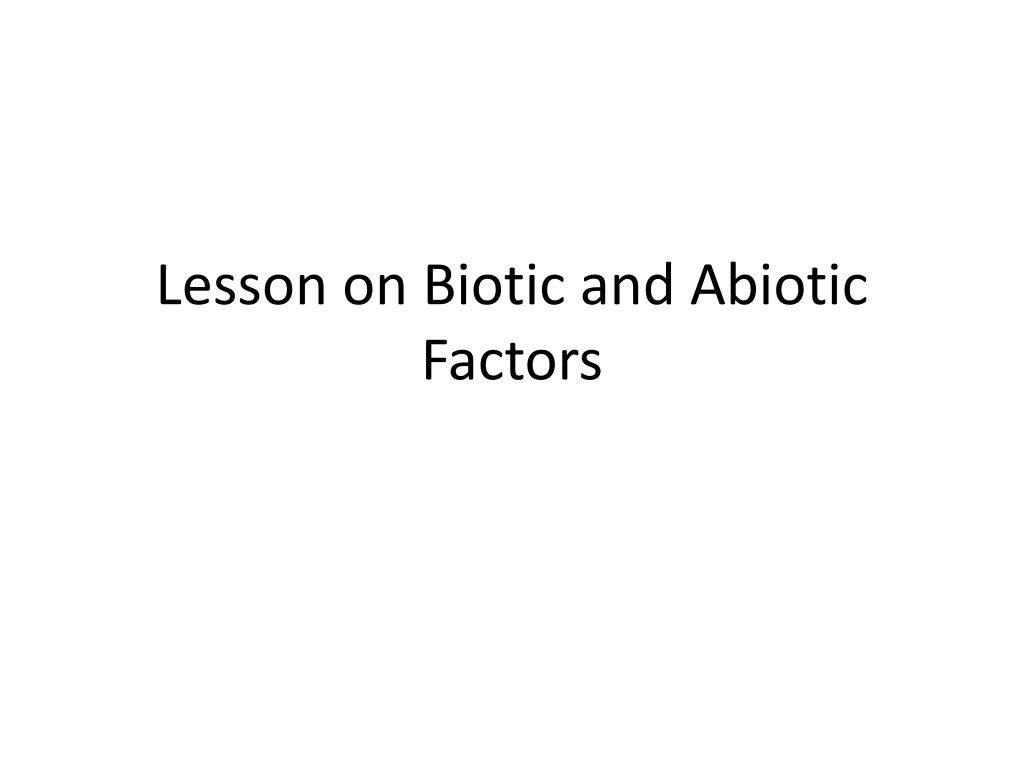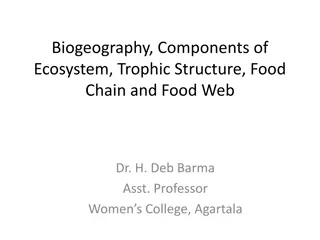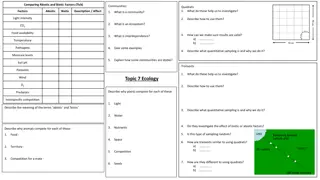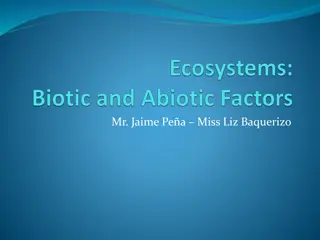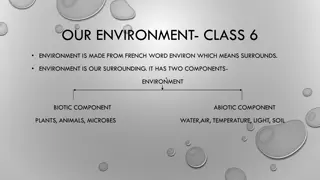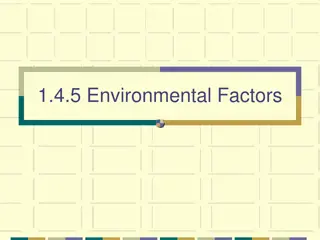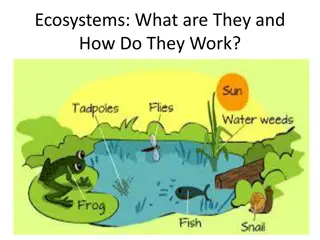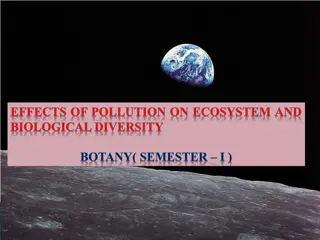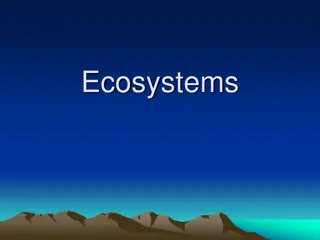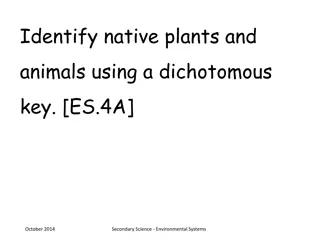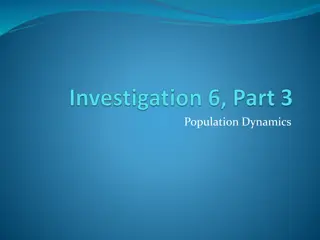Exploring Biotic and Abiotic Factors in Ecosystems
This lesson delves into the importance of biotic and abiotic factors in ecological systems. Students will learn to differentiate between living (biotic) and non-living (abiotic) components affecting organisms such as mice and plants. Through engaging activities and challenges, participants will grasp the significance of factors like predators, climate, and nutrients in sustaining life.
Download Presentation

Please find below an Image/Link to download the presentation.
The content on the website is provided AS IS for your information and personal use only. It may not be sold, licensed, or shared on other websites without obtaining consent from the author. Download presentation by click this link. If you encounter any issues during the download, it is possible that the publisher has removed the file from their server.
E N D
Presentation Transcript
Lesson on Biotic and Abiotic Factors
What factors both living and non living will affect my life? 3 minutes To THINK PAIR SHARE
Factors affecting mouse Predators Food Shelter Temperature Weather Competitors Pathogens Parasites Clean Water
Factors Affecting Plant Predators Food Shelter Temperature Weather Competitors Pollinators Soil Nutrients Wind Aspect Daylight
Keywords for today Biotic Abiotic Climatic Edaphic
At the end of todays lesson you will be able to Define biotic, abiotic, climatic and edaphic Give examples of each type of factor
Classify the factors in the picture as either biotic factors or abiotic factors
List the Biotic and Abiotic Factors in the Image
Decide if Factor is Biotic or Abiotic Write B if Biotic _______ Corpse _______ Snail _______ Vegetation _______ Bread Mould _______ Trees _______ Soil _______ Plastic _______ Pipe _______ Air _______ Wind Write A if Abiotic _______ Mouse _______ Rocks _______ Water _______ Fish _______ Paper _______ Glass _______ Aluminum _______ Wooden Ruler _______ Sand _______ Clouds
Biotic or Abiotic or Both? Fish Dirt Flower Chair Dog Dead animal Water Worm Wooden Table Train Burger Cotton Shirt Atom Wheat Sunlight Plastic T.V. Ice Insects Broccoli Hydrogen Wood Pine Tree Strawberries Sea Shell Energy Wind
Decide whether these items are Abiotic, Biotic, or can be argued to be both, then place in the Venn diagram. Abiotic Biotic
List the Biotic and Abiotic Factors in the Image
Abiotic Factors Climatic and Edaphic Climatic - factors that relate to the weather Edaphic factors that relate to the soil
What climatic factors could we measure? Light Intensity Humidity Wind speed Temperature Aspect Slope
What edaphic factors could we measure? Soil pH Amount of water in soil Soil Temperature Soil Air Soil Texture
Inquiry Approach Do humans always adversely affect biodiversity? Rice fields versus Marsh Is the weather in Ireland the same? climatedata.eu
The Deer Population A field study was conducted to observe a deer population in a given region over time. The deer were counted at different intervals over a period of 40 years. During this period of time both ranching and hunting increased in the study region. A summary of the data is presented in the table.
Questions on Deer Population During which 10 year period did the greatest increase in the deer population occur? State one possible action that could have been used to help maintain a more stable population of deer in the area. Identify an abiotic limiting factor for the deer populations. Identify a biotic limiting factor for the deer populations. List two problems an overpopulation of deer can cause in the environment.
